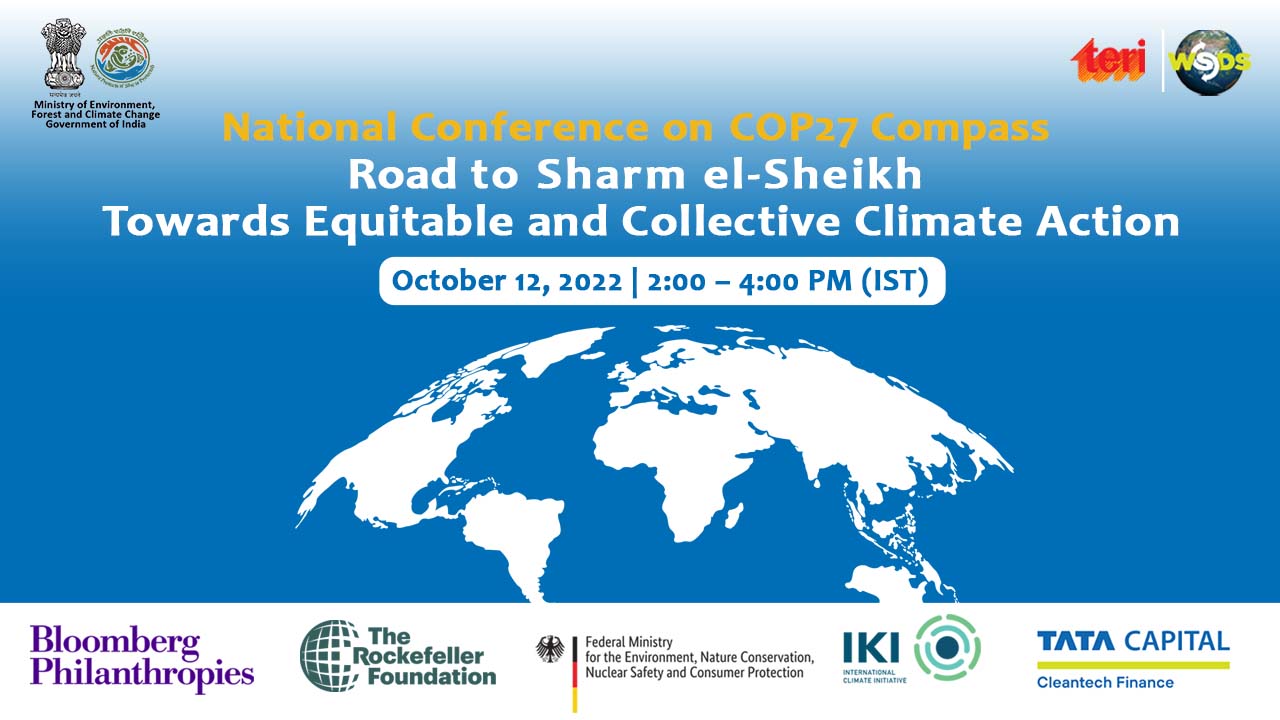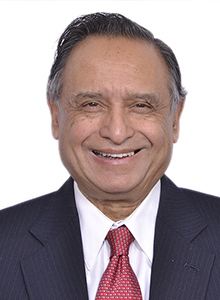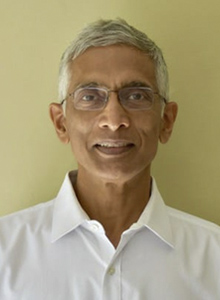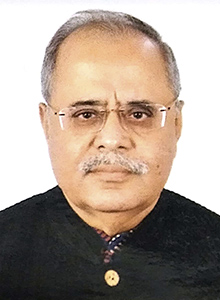
The 27th UN Climate Change Conference of the Parties (COP27), to be held from November 6–18, 2022 in Sharm el-Sheikh, Egypt. COP27 will bring together countries, companies, civil society, and citizens on a common platform to work towards a more sustainable future through adaptation, mitigation, finance, and collaboration. The COP27 Presidency envisions inclusive, rules based, ambitious and substantive outcomes that are commensurate with the challenges based on science and guided by principles as laid down in agreements right from the signing of UNFCCC at Rio Earth Summit in 1992 to Glasgow 2021.
The event is held as a part of COP27 Compass, one of the components TERI’s Act4Earth Initiative. As part of COP27 Compass, we will be preparing policy briefs on themes of global commons and climate change; and a position paper on COP27 negotiations. Last month, TERI organised policy dialogues on each of these themes and invited various stakeholders to seek feedback on the findings. Under the Act4Earth there are two components, namely: - COP27 Compass and SDG Charter. The ‘National Conference on COP27 Compass’ will disseminate the messages from COP27 policy briefs and will also seek to facilitate discussions aimed at raising ambition at the national and global level.
Key guiding questions, from a Global South perspective, for the discussions include:
- What progress can the global community expect on the Global Goal on Adaptation at Sharm el-Sheikh especially in terms of metrics for a global goal?
- What progress can be expected on climate finance including Long-term Finance and New Collective Quantified Goal on Climate Finance processes?
- How can momentum on Loss and Damage be furthered?
- What will be the key factors at Sharm el-Sheikh that will determine concretization of the Global Stock-take process?
- Considering that protecting the global commons is an extremely important factor, how can discussions at the UNFCCC also advance from being centered on national actions to also considering areas beyond national jurisdiction?
- How can climate transitions better factor Lifestyle for Environment and inclusion in energy demand segments, including for agriculture and MSMEs sectors?
- How can G20 play a role in terms of normative influence to promote climate justice and equity?
Speakers

Director General, The Energy and Resources Institute

Distinguished Fellow Emeritus, TERI

CEO, NITI Aayog, Government of India

Senior Fellow, Centre for Policy Research

Climate Finance Specialist & Former Member, Executive, Committee, Green Climate Fund

Jawaharlal Nehru University, New Delhi, India

Head, United Nations Environment Programme, India

CEO, iFOREST

Distinguished Fellow, Earth Science and Climate Change

Senior Fellow, The Energy and Resources Institute

